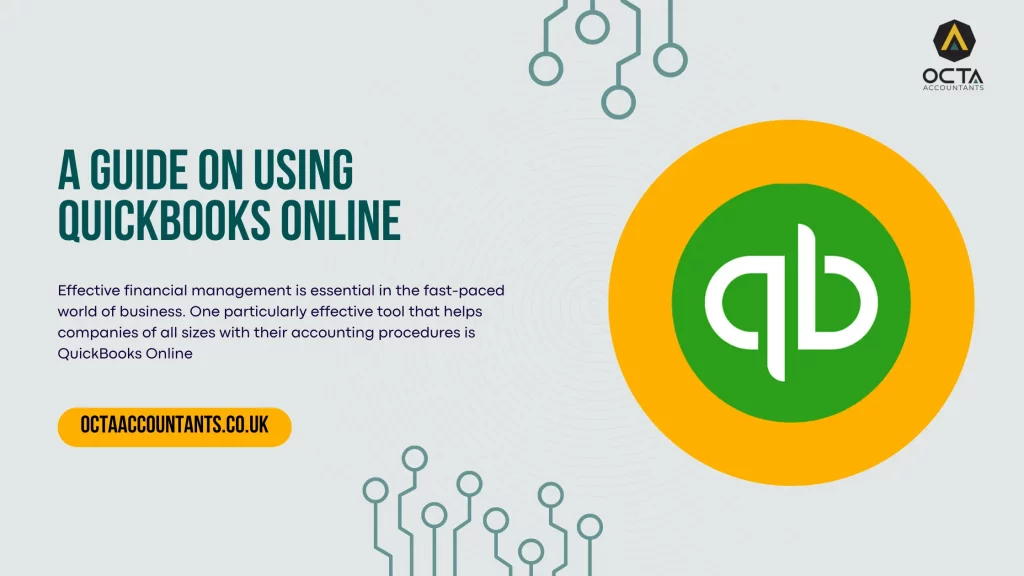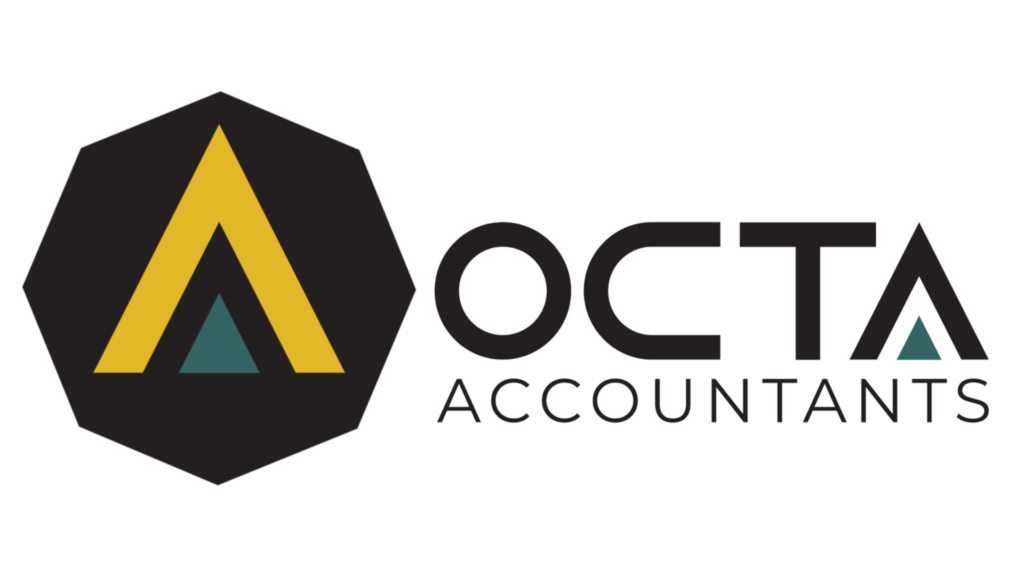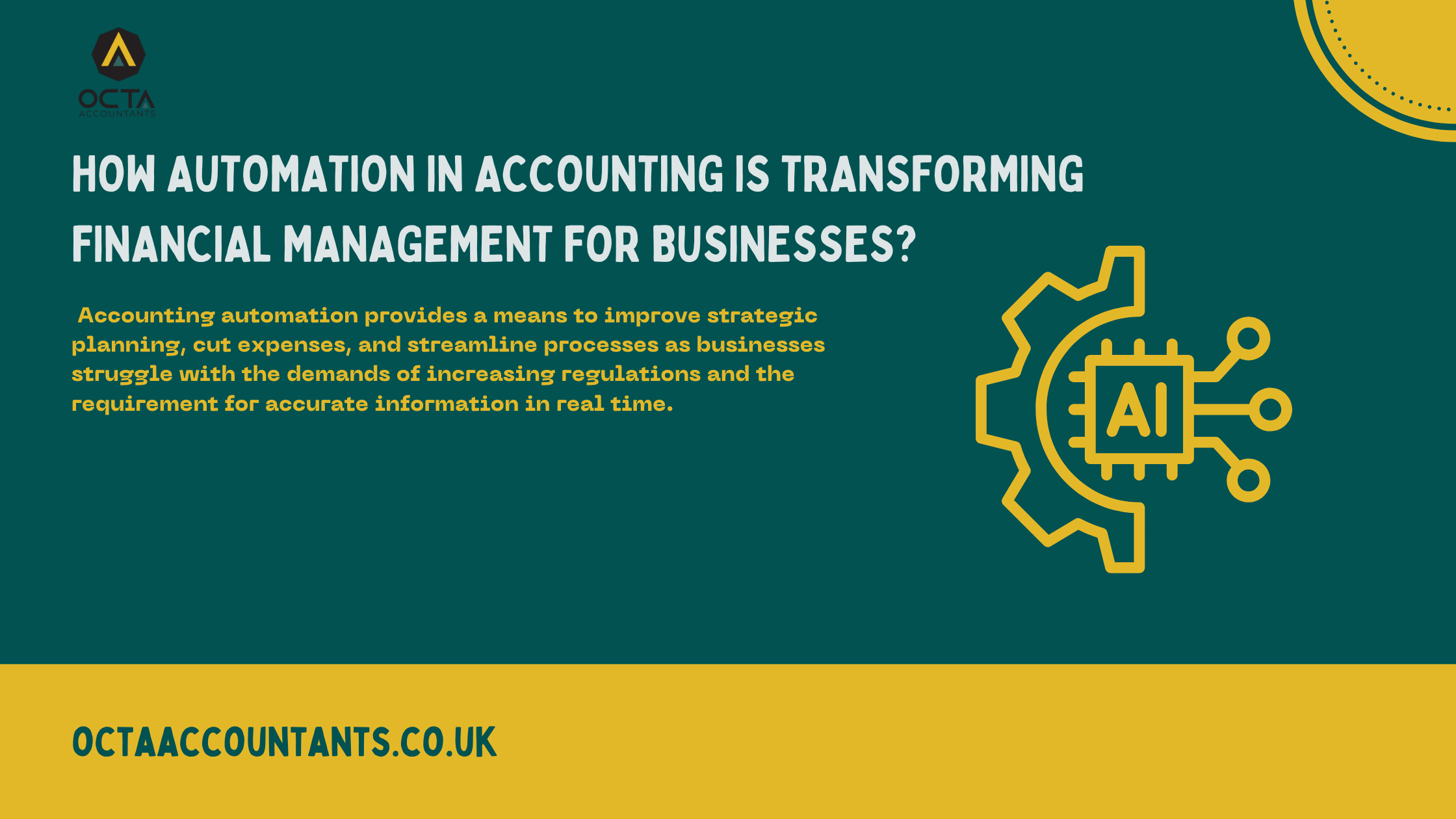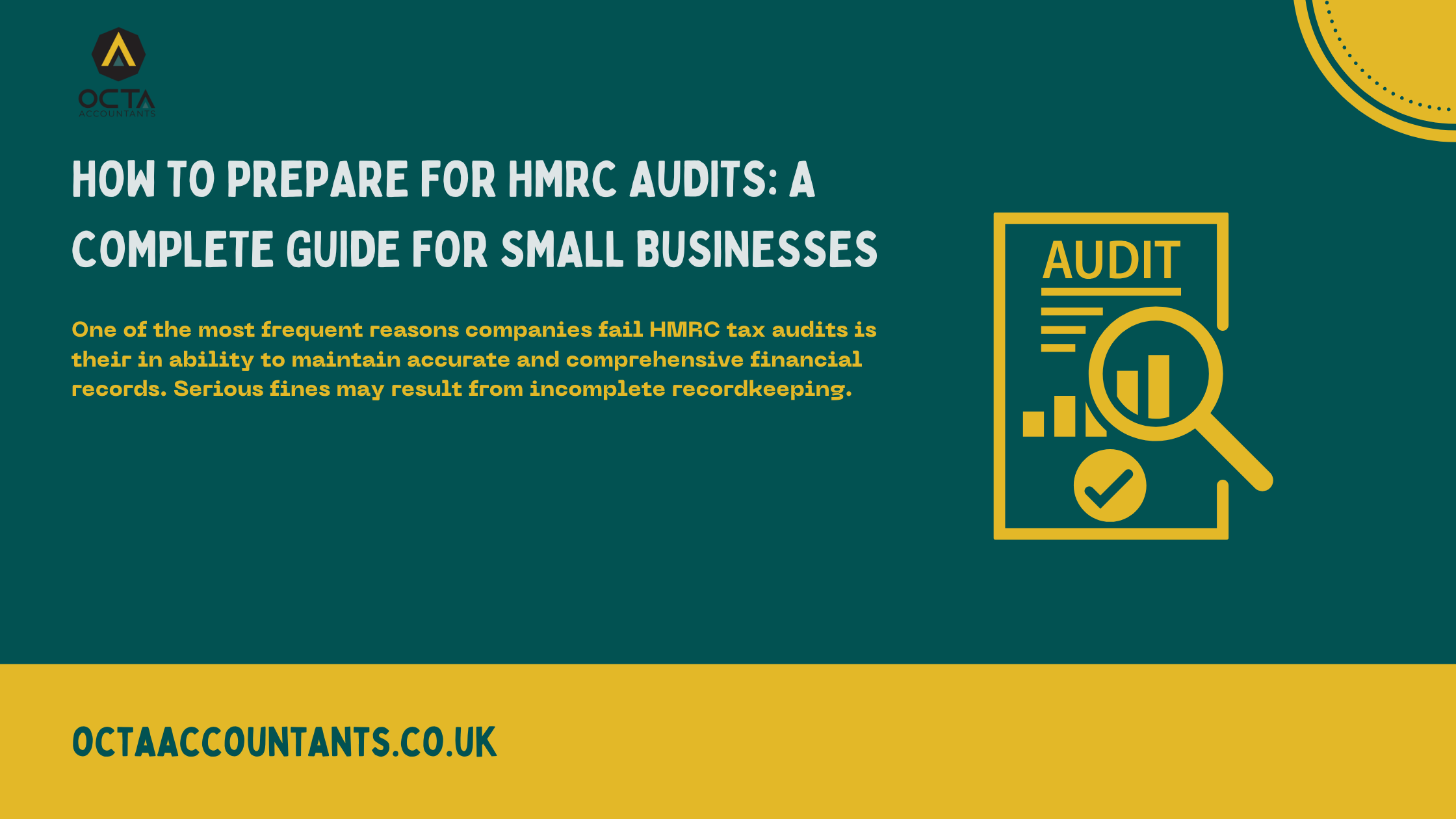
Octa Accountants

4 Min Read

Jan 8, 2024

Accounting & Bookkeeping

Effective financial management is essential in the fast-paced world of business. One particularly effective tool that helps companies of all sizes with their accounting procedures is QuickBooks Online. So, how to use QuickBooks Online? Regardless of your background—small company owner or accounting expert—this lesson will walk you through QuickBooks Online’s key features and offer advice on how to get the most out of it.

First step is to make your account on QuickBooks, alter your preferences, and easily link your bank accounts. Examine the easy-to-use dashboard and become familiar with its main components. The dashboard is your main source of financial analytics, with features that range from tracking sales and tax-related transactions to controlling income and expenses.
Transaction Recording:
Organise and accurately document all of your financial transactions, including receipts, outlays, and revenue. Learn how to create and customise invoices with ease to ensure timely and correct billing.
Reconciliation with the Bank:
Reconcile your bank statements with QuickBooks Online to ensure correctness. Discover the exact steps to take in order to find and fix any inconsistencies and make sure your bank statements and financial records match.
Analytics and Reports:
Discover the reporting features in QuickBooks Online. Provide enlightening data on the profitability, cash flow, and operation of your company so you may make well-informed decisions about expansion.
Add-ons and Integrations:
Examine the many QuickBooks Online integrations and add-ons that are available. Find out how to improve your accounting software’s functionality, from payroll services to third-party apps.
Shortcuts on the Keyboard:
Keyboard shortcuts for QuickBooks Online might help you be more productive. Gaining proficiency in these time-saving tips will enable you to use the software with ease and complete jobs quickly.
Features of Automation:
Explore the features that QuickBooks Online offers for automation. Discover how to eliminate human data entry and improve workflow with techniques like automatic classification and recurring transactions.
Also Read: 5 Best Accounting Softwares for SMEs
User Roles and Permissions:
Effectively manage your team by understanding QuickBooks Online’s user roles and permissions. Learn how to assign roles based on responsibilities, ensuring secure access to sensitive financial information.
Collaborative Workflows:
Explore collaborative features that facilitate teamwork within QuickBooks Online. From sharing reports to collaborating on projects, discover how to enhance communication and efficiency among your team members.
QuickBooks Online Mobile App:
Stay connected to your finances wherever you go with the QuickBooks Online mobile app. Learn how to leverage its features to manage transactions, create invoices, and monitor your business on the move.
Real-Time Updates:
Understand the importance of real-time data access and updates. Explore how QuickBooks Online’s cloud-based platform ensures that you have the latest financial information at your fingertips, enabling quick and informed decision-making.
Common Issues and Solutions:
Navigate potential challenges by addressing common issues that users may encounter. Learn troubleshooting techniques to overcome obstacles and ensure a smooth experience with QuickBooks Online.
Support Resources:
Explore the available support resources provided by QuickBooks Online. From help articles to customer support channels, discover how to find assistance when needed and stay informed about updates and improvements.
Also Read: 5 Best Accounting Softwares for Enterprises
Protecting Your Financial Data:
Prioritise the security of your financial data by implementing best practices within QuickBooks Online. Explore features like multi-factor authentication and secure connections to safeguard your sensitive information.
Regular Data Backups:
Learn the importance of regular data backups and how to perform them within QuickBooks Online. Being proactive about data protection ensures that you can recover information in the event of unexpected issues.
Custom Reports and Dashboards:
Tailor your financial insights with custom reports and dashboards in QuickBooks Online. You can create personalised views that highlight the key performance indicators most relevant to your business, providing a snapshot of your financial health.
Template Customization:
Explore the flexibility of customising templates for invoices, estimates, and other financial documents. Ensure that your brand is consistently represented in your communications by incorporating your logo, colours, and personalised messaging.
Advanced Features for Growing Businesses:
Utilise advanced QuickBooks features designed to support the growth of your business. From inventory tracking to project management, explore tools that cater to the evolving needs of an expanding enterprise.
Multi-Currency Transactions:
If your business operates internationally, learn how to navigate multi-currency transactions in QuickBooks Online. Understand the intricacies of recording and managing finances in different currencies while maintaining accuracy and compliance.
Also Read: 5 Best Accounting Softwares for Enterprises
By exploring these areas of dashboard navigation and account setting, you’ll build a solid foundation for utilising QuickBooks Online. While the linked bank accounts offer real-time data for well-informed financial decision-making, the customisation options guarantee that the platform conforms to the particulars of your organisation.
But you need to understand the accounting and best financial practices if you’re a managing a larger business. In that case, it ‘s best to hire an accountant.
Since hiring a team of accountants in-house can be expensive as you have to pay salaries and bear expenses, it is best to outsource accounting to an accounting firm like Octa Accountants. You can book a free meeting to get started with Octa or contact us via a form/call.
About Us
Octa Accountants is a one-stop accounting firm that offers a wide range of finance management services.
Our Blogs
How Automation in Accounting is Transforming Financial Management for Businesses?
How Automation in Accounting is Transforming Financial Management for Businesses? Octa Accountants 7 Min Read Apr 14, 2024 Technology Staying ahead of current trends is crucial for development and sustainability in the dynamic business environment. The advent of automation in accounting has been one of the biggest changes in recent years. Automation is changing how […]
What is UK Corporation Tax?
What is UK Corporation Tax? Octa Accountants 7 Min Read Apr 14, 2024 Company Incorporation For businesses hoping to be legally and financially effective, navigating the complexity of the UK tax system is essential. The UK corporation tax is a key part of this system. Understanding the intricacies of UK corporation tax is essential for […]
How to Prepare for HMRC Audits: A Complete Guide for Small Businesses
How to Prepare for HMRC Audits: A Complete Guide for Small Businesses Octa Accountants 7 Min Read Apr 14, 2025 Audit From overseeing daily operations to making sure financial records are accurate, entrepreneurs balance a variety of duties as running a small business has its own unique challenges. Running a business is never easy no […]



